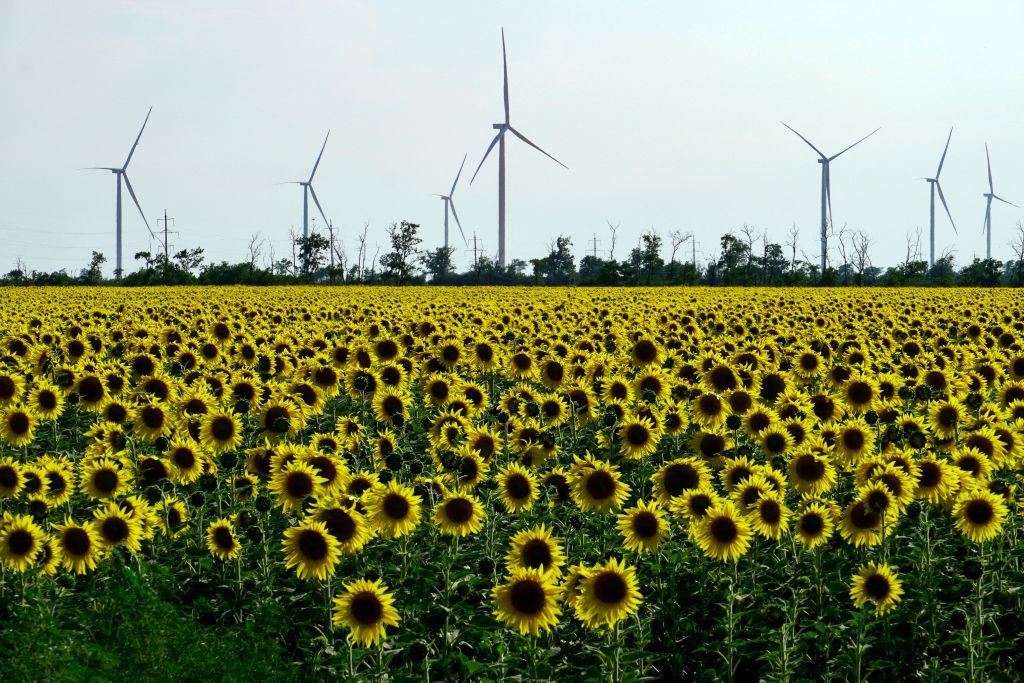Editor’s Note: The opinions expressed in the op-ed are those of the authors and do not purport to reflect the views of the Kyiv Independent.
On May 10, the European Parliament signed the Carbon Border Adjustment Mechanism (CBAM) and an amendment to the EU Emissions Trading System (EU ETS). From Oct. 1, importers to Europe will be required to report greenhouse gas emissions, with it being fully effective from 2026. Most of Ukraine's industrial exports will then be subject to the CBAM regulation.
The regulation’s signing is a clear signal that Russia’s war against Ukraine is not impeding climate policies, but rather accelerating them – including the transition to renewable energy sources. It also proves that decarbonization measures are not optional for individual countries, but a mandatory requirement for those who consider the EU a trading partner.
CBAM and EU ETS regulations
The significant measures approved by the European Parliament are aimed at achieving climate targets by 2030 through gradually phasing out the EU ETS’ emission allowances from 2026 and introducing the CBAM regulation.
The CBAM will cover industries such as iron, steel, cement, aluminum, fertilizers, electricity, and hydrogen, as well as indirect emissions under certain conditions. Importers of these goods will be required to pay the price difference between the carbon price in the country of production and the price of carbon allowances in the EU ETS.
The aim is to reduce greenhouse gas emissions in the ETS sectors by 62% in 2030 as compared to 2005 levels. The EU ETS will also expand to cover fuels for road transport and buildings, setting a price for greenhouse gas emissions for these sectors in 2027 (or 2028 if energy prices are unusually high).
In addition to these measures, the European Parliament also voted to include greenhouse gas emissions from the maritime and aviation sectors in the ETS to promote the use of cleaner fuels and reduce further carbon emissions.

Implications of CBAM for Ukraine
These are significant developments for Ukrainian business since the EU became a primary trading partner for industrial goods last year. The Ukrainian energy sector is therefore highly invested in the introduction of an ETS in Ukraine by 2030 that is on par with EU standards.
According to Pavlo Masiukov, the senior coordinator of an initiative by the German Agency for International Cooperation (GIZ) to introduce an ETS in Ukraine, the industrial sector may be interested in introducing it even faster – from 2026, when the CBAM regulation starts.
“The best option will be to launch a pilot or transitional phase of the ETS in Ukraine in 2026, with full integration with the EU ETS by 2030. This would ensure that funds paid for carbon emissions will remain in the country and be used for decarbonization measures in Ukraine, rather than being sent to the EU,” he told me.
However, it is currently unknown when the ETS will start operating in Ukraine. The deadlines specified in the EU Association Agreement for introducing an ETS have already expired and not been revised since. There is also currently no draft law on it in Ukraine.
Furthermore, Ukraine’s reform of greenhouse gas Measurement, Reporting, and Verification (MRV), which aims to introduce annual enterprise-level reporting and create a unified register for greenhouse gas accounting and registration of installations, is only partially operational.

An audit conducted by Ukraine’s Accounting Chamber revealed that, from July to December 2021, only 264 installations emitting greenhouse gases had officially submitted their monitoring plans to the National Center for Greenhouse Gas Emissions Accounting – a meager 15% of Ukraine’s total installations.
Of the 201 risk assessment recommendations forwarded to Ukraine’s Ecology Ministry, only 36 approved the monitoring plan. The remaining 164 recommendations pointed to shortcomings and inconsistencies, leading to the conclusion that the monitoring plan could not be approved.
The report highlighted that several of Ukraine’s largest chemical plants and most coke plants, which are primarily privately owned, have disregarded the requirements set by Ukraine’s legislation and the country’s international obligations.
Masiukov suggested that, even though the MRV system may not be established by the end of the war, this does not necessarily mean that the implementation of the ETS is impossible, noting there are “various approaches” to implementing it.
“For instance, some European countries implement monitoring, reporting, and verification of emissions alongside the ETS. Turkey’s experience demonstrates that they, like us, first implement MRV, fill in all the gaps, and then implement the ETS,” he said.
Masiukov also mentioned a “linking instrument” that permits non-EU countries to join the EU ETS, like Switzerland has done.

How Ukrainian business can remain competitive
The first recommendation for Ukrainian businesses to remain competitive amid changing climate policies is to implement the Greenhouse Gas Protocol (GHG), which guides business and governments in measuring climate-warming emissions.
Greenhouse gas emissions must be accurately calculated before they can be reduced. The GHG allows companies to calculate both their direct and indirect emissions, including the impact of their supply chain.
The second recommendation is to develop a decarbonization map based on sectoral recommendations and the Paris Agreement’s commitment to limiting global warming to 1.5 degrees Celcius.
To achieve this, Ukrainian businesses should consult and commit to the Science Based Targets initiative (SBTi), which encourages companies worldwide to set science-based climate targets. The SBTi has already supported over 1,200 companies in more than 50 sectors worldwide to confirm targets that cover a thousand megatons of annual greenhouse gas emissions, equivalent to about 308 coal-fired power plants. I have prepared step-by-step instructions on how to implement the GHG protocol and apply for the SBT initiative for Ukrainian business.
The third recommendation is to complete an environmental impact report in the CDP database, considered the "gold standard" of environmental reporting, which enables companies to compare themselves to others in the industry and get a complete picture of the missing data and reporting needed to comply with the CSRD.
The final recommendation is to prepare for Ukraine’s implementation of Directive 2010/75/EU on industrial emissions, aimed at integrated pollution prevention and control. A new draft law has recently been approved by Ukraine’s parliament, setting the stage for the adoption of such measures in the near future.
The European Commission has also adopted relevant documents and action plans dedicated to addressing energy efficiency and emissions, which are aimed at reducing air pollution. Ukraine should do the same.
Ensuring Ukrainian businesses’ access to EU markets is a crucial factor in establishing Ukraine as an independent state in Europe after our victory.















